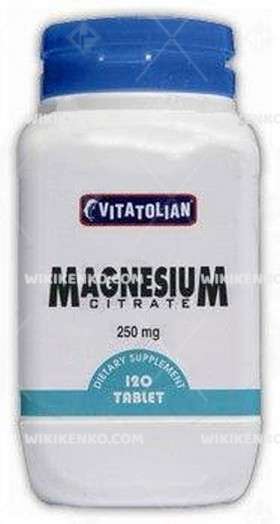Magnezinc Film Tablet
In the realm of mineral supplements, Magnezinc Film Tablet emerges as a valuable resource for addressing deficiencies in zinc and magnesium. This pharmaceutical product, manufactured by Berko İlaç, warrants an in-depth exploration to understand its composition, therapeutic applications, precautions, and potential interactions with other medications.
| Dosage form | |
|---|---|
| Pack size | |
| Potency | Combined |
| Manufacturer | |
| Origin | |
| Generic Name (Ingredient) | Zinc (Zinc Sulfate In The Form Of Monohydrate) 30 Mg Magnesium (In Case Of Magnesium Oxide) 300 Mg It Contains. |
Assuming your emergency circumstances for this product, visit Urgent Quotation page. Besides, for any pharmaceutical questions, please ask us in the comments section.
Description
Magnezinc Film Tablet comprises two essential minerals: zinc and magnesium. Each tablet contains 30 mg of zinc, equivalent to 82.6 mg of zinc sulfate monohydrate, and 300 mg of magnesium, equivalent to 520.4 mg of magnesium oxide.
These active ingredients are thoughtfully blended with excipients, including lactose monohydrate, corn starch, croscarmellose sodium, polyethylene glycol, and povidone K30. The tablet’s coating material encompasses hypromellose, titanium dioxide (E171), polyethylene glycol, and lac carmoisine (E122). The commercial packaging of Magnezinc consists of a box containing 40 tablets.
The Therapeutic Landscape of Magnezinc
Magnezinc Film Tablet serves as a mineral supplement, specifically designed to counteract deficiencies in zinc and magnesium. Beyond this primary role, Magnezinc exhibits utility in addressing certain medical conditions, including Wilson’s disease, characterized by the excessive accumulation of copper in the body, and zinc absorption disorders like acrodermatitis enteropathica.
Contraindications and Precautions
While Magnezinc presents itself as a beneficial supplement, certain contraindications and precautions merit attention. Individuals with severe kidney insufficiency or hypersensitivity to any of the tablet’s components should refrain from its use.
For those with a history of kidney insufficiency, pregnant or breastfeeding individuals, or those advised by their healthcare provider of sugar intolerance, cautious administration is recommended. Magnezinc is not suitable for addressing unexplained adult diarrhea or treating diarrhea in children due to the high single dose of zinc present in 30 mg zinc products.
Administration Guidelines
Magnezinc Film Tablet is administered orally. However, it should not be ingested in conjunction with fibrous, bran-containing foods or dairy products, as these can hinder its absorption.
Magnezinc Side Effects
Both zinc and magnesium, the core components of Magnezinc Film Tablet, are generally safe for consumption. However, it is essential to exercise caution. When taken without food, either supplement can lead to stomach upset and discomfort. Additionally, interactions with other supplements or medications may occur. Zinc may impede the body’s ability to absorb copper and iron, crucial minerals involved in hemoglobin synthesis.
Consequently, it is advisable to avoid simultaneous intake of these supplements whenever possible. Furthermore, zinc and magnesium may reduce the effectiveness of specific antibiotics like tetracycline. To mitigate this risk, it is recommended to space out the consumption of antibiotics and supplements by several hours.
Conclusion
In conclusion, while Magnezinc Film Tablet offers a convenient solution for addressing mineral deficiencies, it is imperative to consult a healthcare provider before initiating any new medication or supplement regimen. Your healthcare provider possesses the expertise to evaluate potential interactions with other medications you may be taking, ensuring your safety and well-being. Their guidance will provide you with the most accurate and up-to-date information, allowing you to make informed decisions regarding your healthcare journey.
Use the form below to report an error
Please answer the questions as thoroughly and accurately as possible. Your answers will help us better understand what kind of mistakes happen, why and where they happen, and in the end the purpose is to build a better archive to guide researchers and professionals around the world.
The information on this page is not intended to be a substitute for professional medical advice, diagnosis, or treatment. always seek the advice for your physician or another qualified health provider with any questions you may have regarding a medical condition. Always remember to
- Ask your own doctor for medical advice.
- Names, brands, and dosage may differ between countries.
- When not feeling well, or experiencing side effects always contact your own doctor.
Cyberchondria
The truth is that when we’re sick, or worried about getting sick, the internet won’t help.
According to Wikipedia, cyberchondria is a mental disorder consisting in the desire to independently make a diagnosis based on the symptoms of diseases described on Internet sites.
Why you can't look for symptoms on the Internet
If diagnoses could be made simply from a textbook or an article on a website, we would all be doctors and treat ourselves. Nothing can replace the experience and knowledge of specially trained people. As in any field, in medicine there are unscrupulous specialists, differences of opinion, inaccurate diagnoses and incorrect test results.



Reviews
There are no reviews yet.